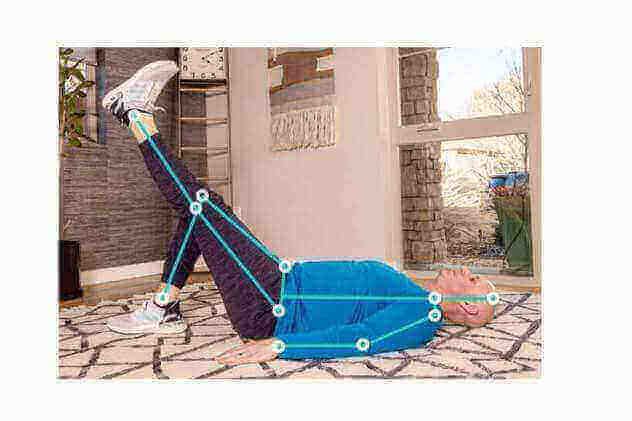Undeniably, AI is doing wonders in every industry since its inception.
Healthcare is one of those industries that is experiencing the potential of AI to make care solutions more effective and at the same time easily accessible and efficient.
The wave of AI innovations has benefitted caregivers by enabling them to identify anomalies in health conditions, predict disease progression and outcomes, and develop effective treatment plans. Moreover, AI has increased healthcare professionals’ ability to better understand people’s needs through Question and Answer platforms, chat boxes, and virtual health assistants.
As AI is enhancing its proficiency, it is transforming the clinical approach for various physical therapy needs.
Because of that reason, many physical therapists across the globe are asking the same question, “Does AI have the potential to replace us?”
So, if you’re a physical therapist or just another person looking forward to gaining some knowledge, then this blog contains every answer to your questions.
But first, how does AI in physical therapy work?
AI is supporting physical therapists to improve the outcomes of the patients without adding any extra effort.
Let’s explore how.
- Implementation of AI in the wireless motion tracker:
A wireless motion tracker is one sort of device that is attached to the patient’s body during the therapy session.
The ultimate goal of this device is to collect data on the patient’s various body movements which enables the therapist to provide real-time feedback during the treatment session.
For instance, a patient is doing the squat and the motion tracker is analyzing and collecting the data of each body movement and sends it directly to the therapist.
After analyzing the body movement, the therapist suggests real-time feedback if something needs to be changed such as widening the body stance.
- Rehabilitation robots:
Rehabilitation robots enable the patients to perform the exercise more precisely.
But with the AI implementation, PTs can improve the outcomes of the session by analyzing the real-time data.
The AI gathers the data of robotic movements and shares it with the therapist for the analysis purpose while at the same time AI automatically adjusts robotic movement based on the data collected by itself.
In fact, these robots are capable of supporting the patients in the exercise by lifting the weight so the patients can perform tasks for a long period of time without exhaustion.
- AI-based virtual reality session:
We both are aware of how VR devices are taking the place in multiple industries.
But, it’s a game-changer for the physical therapy approach.
It is the one type of gaming session that trains the patients as per their physical condition.
In addition to this, it also helps the trainer to examine the results so that the therapist can improve or create a more effective therapy plan.
Okay. So the real question is, will AI replace the PTs in future?
Let’s understand in the true sense.
Undoubtedly, AI is far better and more accurate than humans when it comes to data collection, examination, and sharing. In fact, it never gets tired from the high work burden and takes no leave for health and personal concerns.
However, physical therapy is not just about the data.
The treatment is way more complex and tedious which non-healthcare professionals can’t even imagine.
So the answer is – AI is never going to replace the physical therapist for eternity.
PTs have the ability to deal with the complexness of the therapy session along with deciding what is suitable and what is not for the patients.
What’s more important is that AI can never replace the emotional and motivational guidance of therapists.
Because at some point, the physical concerns lead patients to some serious mental health problems. At that time, AI holds a zero ability to boost the confidence of the patients with the help of the data.
Thus, AI is never going to replace the PTs.
But, the combination of AI and PTs can do wonders in terms of the quality care experience and predicting the outcomes.
Why is AI important for PTs and physical therapy?
One hand can’t clap. It requires the efforts of both hands.
In the same manner, AI can’t help the patients with just raw data.
So, let’s explore the importance of AI by working with the PTs to decode the various physical concerns of the patients.
- AI helps the PTs to reduce some unnecessary workflows so that they can focus on the patient outcomes and quality of care experience
- Using AI implementation with the motion trackers, PTs can examine the important metrics of the patient’s body movement.
- AI sends accurate data which helps the therapist to create a more convincing and efficient care plan for the patients.
- AI speeds up the therapy progress along with predicting the outcomes of the treatment
- The most important thing about AI in physical therapy is that it makes patients’ at-home recovery time more effective.
- AI gathers the accurate and reliable movement data of the patients’ therapy sessions and overall progress
Last but not least, AI is massively supporting clinical physical therapy decision-making.
The future of AI in physical therapy
Healthcare technologies are continuously expanding in the lives of the patients with the aim to make healthcare approach patient-centric and outcome-driven.
Healthcare facilities and individuals are adopting AI-based software for physical therapy.
For instance,
- Exer Physio
- Physitrack
- Sword Health
These softwares are decoding the concerns of both patients and therapists with their AI-driven tools, user-friendly interface, real-time feedback, notification, and most importantly usability.
However, as per our comprehensive knowledge of AI, we are predicting the below-mentioned improvements are going to be the game-changer for AI in physical therapy in the upcoming years.
- Reducing the documentation and other clinical workflows for the physical therapists.
- Gathering and sharing more insightful data on the patients’ body movement
- Enhancing the patient engagement with their therapy session
Final words
With AI-based health tech solutions, not only physical therapy but many forms of healthcare solutions can become a game-changer for the patients as well as the healthcare professionals.
To do so, focusing on the healthcare app development is very important for the healthcare enterprise, facilities and organizations to keep the patients’ modern demands a top priority.
As a result, healthcare will experience a new form of healthcare solutions that is beneficial to the entire healthcare ecosystem without compromising the medical costs and beyond.


